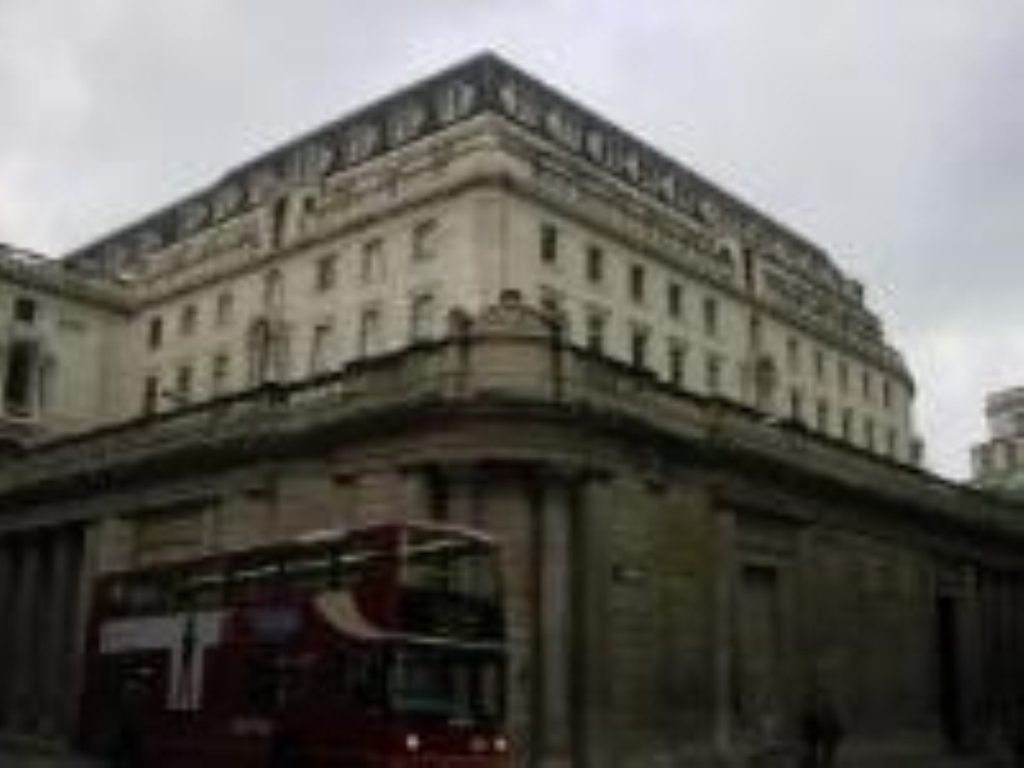Bank of England expects growth to pick up
The Bank of England has said today that it expects economic growth to pick up in the second half of this year, stimulated by the recent fall in the value of sterling.
Releasing its quarterly inflation report, the Bank predicted that Inflation will exceed three per cent this year then drop back to its 2.5 per cent target in most of 2004, the bank forecast – reflecting the recent increases in council tax.
However, it said inflation would then fall back slightly below the target early next year as moderating housing and fuel prices outweighed the impact of the lower exchange rate on import prices.
At the two-year forecasting horizon, the Bank said inflation was likely to have edged back up to target.


The Bank also warned that house price growth could slow more sharply than it had expected. ‘The data that has come in since [February] has led us to conclude that house price inflation will fall back to zero a little closer than we expected,’ said Mervyn King, the Bank’s deputy governor, and governor elect.
Mr King later stated, to an audience of journalists, that the Bank saw this as more comforting than alarming as it meant a sharp correction was unlikely.
Analysts said the report showed that the interest rate setting Monetary Policy Committee was less concerned about inflation than had been expected given the pound’s fall and that British interest rates were likely to stay on hold for some time.
Last week, the Bank’s monetary policy committee decided to keep interest rates on hold at a 48-year low of 3.75 per cent, inciting a storm of protest from business organisations.
Growth in the first quarter of 2003 was just 0.2 per cent, significantly less than expected at the time of the last inflation report.
The Bank predicted today that growth would gather pace in the second half of 2003 and average about 2.5 per cent next year.
This figure is some distance adrift of Chancellor Gordon Brown’s estimate in his latest budget.
Last month, Mr Brown trimmed his UK growth forecast for this year by half a percentage point to between two and 2.5 per cent, while keeping his prediction for growth of as much as 3.5 per cent next year.
Mr King played down the difference between the two predictions at a press conference.
He said the half a percentage point difference between the forecasts ‘hardly amounts to a dramatic difference’. Adding that the chance of the Treasury and the Bank agreeing 100 per cent on the figure was ‘zero’.
‘Overall the outlook for the level of GDP is rather lower in the near term than was expected in February, but rather higher during the second year of the projection as the lower value of sterling continues to stimulate activity,’ the report said.
The Bank described the risks to its growth and inflation forecasts as ‘broadly balanced’. It said individual members of the monetary policy
committee maintained a range of views on the risks, but that the differences were narrow
Prime Minister Tony Blair’s spending on roads, schools and hospitals will help boost UK economic growth while a five per cent drop in the value of the pound will spur exports, the bank said.
‘The committee does not believe that all is for the best in the best of all possible worlds,’ said Mr King, ‘Consumer spending deteriorated sharply in the early part of the year, and house price inflation has continued to slow.’
‘The uncertainties associated with the Iraq war are not totally removed but have largely disappeared,’ current governor Sir Edward George said earlier this week. ‘What we’re left with is the kind of deep pessimism that has affected financial markets in a very negative way, but also affected business and consumer confidence.’
‘Overall, the conclusion must be that this is a more dovish Report than the news flow over the last three months would have suggested,’ said Adam Cole, economist at Bank Credit Agricole Indosuez.
‘In particular, the Bank seem to be much less sensitive to the exchange rate than we thought’












